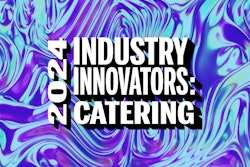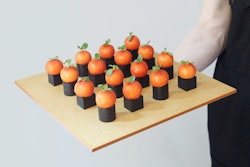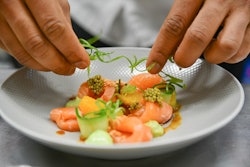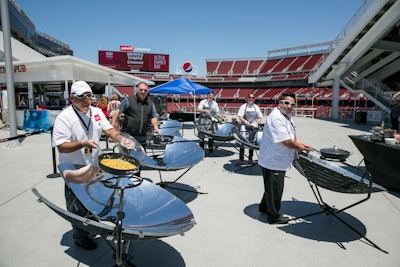
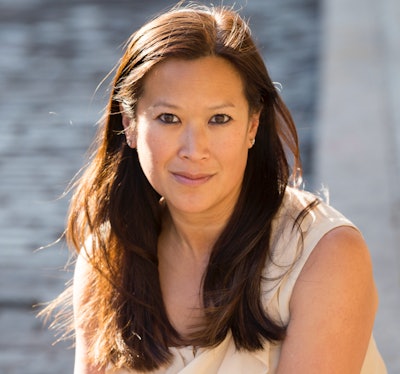 Caryl ChinnPhoto: Steven Freeman
Caryl ChinnPhoto: Steven Freeman
How she got her start: "I got my start working in the office of Stars Restaurant in San Francisco for legendary chef Jeremiah Tower 30 years ago. Through him I met Julia Child, Wolfgang Puck, and countless others. After three years with Stars, I felt the pull of New York City, so I reached out to some people at Bon Appétit magazine I had met—and as luck would have it, they were just creating a new position of special events manager. I moved to New York and wound up staying at Bon Appétit for 10 years, working on events throughout the country and a few international events like the Cannes Film Festival. It was an exciting time for culinary events, as chefs were becoming bona fide celebrities and the Food Network was a top 10 network on cable.
In 2005, I was recruited to join Karlitz & Company to help establish a culinary division, and worked with such iconic clients as American Express, Godiva Chocolate, the New York Yankees, and more. Undoubtedly, the crowning achievement while there was collaborating with festival founder Lee Schrager on the establishment of the Food Network New York City Wine & Food Festival—it saw upward of 40,000 guests and is the sister event to the wildly successful South Beach Festival. I produced the first four years; it’s now celebrating its 17th year and has gone on to raise millions of dollars for charity.
I moved to LA and launched my own firm in 2011, and have been lucky to work on so many exciting projects. I’m proud to have played a key role in so many of the most well-known and well-attended food festivals over the past 30 years." 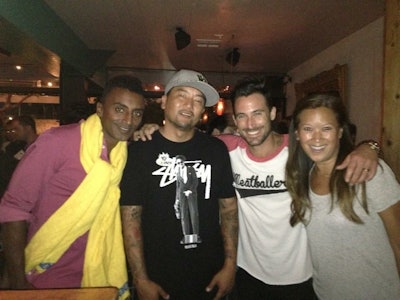 Chinn was formerly the special events manager for Bon Appétit magazine, where she rubbed shoulders with chefs like Marcus Samuelsson, Roy Choi, and Michael Chernow. "It was an exciting time for culinary events, as chefs were becoming bona fide celebrities," she remembers.Photo: Courtesy of Caryl Chinn
Chinn was formerly the special events manager for Bon Appétit magazine, where she rubbed shoulders with chefs like Marcus Samuelsson, Roy Choi, and Michael Chernow. "It was an exciting time for culinary events, as chefs were becoming bona fide celebrities," she remembers.Photo: Courtesy of Caryl Chinn
What sets her company apart: "Although I operate as an independent contractor, because I spent so much time working in house for a large company, I work really well with big corporate clients. I am able to layer on and provide my expertise and be the proverbial hub that ties all the spokes together; it allows the client’s team to focus on their day jobs while playing their roles in the event we’re producing together. For example, last year, I worked with L.A. Live to successfully produce the first-ever Pizza City Fest—we just announced the second annual event this April!"
What innovation means to her: "While working on a food and technology event (see below), I learned that innovation is not the same thing as technology—but could also include new and innovative ways of tackling problems. I make it a point to attend other people’s events to see what’s new and how people handle challenges. Increasingly, I’m seeing new ways to address climate change and avoid food waste, i.e., 'hydration stations' for reusable water bottles eliminating single-use plastic bottles, or working with local organizations like Chefs to End Hunger or Copia to recover excess food."
Memorable moments: "The event I am most proud of was a food festival I created that celebrated all the ways food and technology intersect—BITE Silicon Valley—in 2015. It kicked off with a one-day conference that discussed issues like GMO agriculture and food deserts, and our keynote speaker was chef José Andrés, who not only spoke about the organization he had just started, World Central Kitchen, but set up a kitchen of solar cookstoves and served the guests tacos!
That was followed by a two-day food festival that showcased local Silicon Valley chefs alongside innovative vendors serving liquid nitrogen ice cream and 3D-printed sugar art. It was truly groundbreaking; I hope someday to bring it back!" 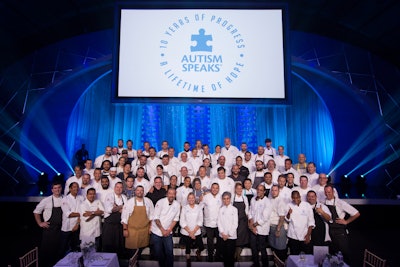 Chinn has also produced high-profile culinary events including the Autism Speaks Celebrity Chef Gala.Photo: Courtesy of Caryl Chinn
Chinn has also produced high-profile culinary events including the Autism Speaks Celebrity Chef Gala.Photo: Courtesy of Caryl Chinn
Her all-time favorite food: "French fries! From the fast-food variety to the Bougie Tots at Dear John’s, which are Tater Tots topped with caviar, salmon roe, creme fraiche, and chives."
Her biggest hope for the F&B industry: "I recently shared a look back at my career with a media outlet and realized when I started in the industry, there was hardly any diversity in the fine dining world. For many years there were not many women in the industry, let alone BIPOC women. When I look at the landscape now, it is completely different—so my hope is that it continues to evolve and offer more opportunities and recognition for both women and BIPOC chefs and players in the culinary/event industries."




